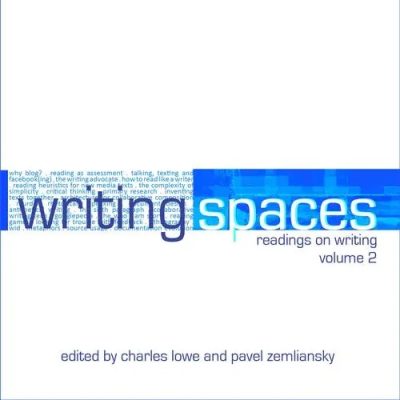19 Alex Reid’s “Why Blog? Searching for Writing on the Web”
Writing Spaces Volume 2
A major roadblock many students encounter in writing courses is their writing assignments. The motivation for writing for most assignments focuses on either how to follow instructions to complete the task, or what the student needs to do in order to get an A. Reid suggests that the rigidity of the writing-intensive classroom assignments are often what hold students back from achieving real practice as writers. An alternative to these narrow topics is to allow students to begin writing blogs. According to Reid, “a blog is an excellent opportunity for exploring and developing intrinsic motivations for writing” because the student controls “the subject matter, the length, the format, the timing of your posts, and all the other characteristics of your writing.” This chapter continues to explore to define what blogging is, as well as show the benefits of blog writing to students. This advice is supplemented with Reid’s own experiences creating and establishing his own blog. Reid also provides practical advice on how students might come up with and create their own blogs that they can personally engage with and will encourage them to keep writing. This chapter aims to help students gain essential writing practice by tapping in to individual motivations and drives.
“As a student in a first year writing course, you may not envision yourself as a writer. It is understandable that you may not want to dedicate yourself to the 10,000-hour journey toward expertise. However, you might want to dedicate yourself to a more modest goal. You might want to be among the best writers in your major or among the applicants for the graduate school or job that you’ll be pursuing when you graduate.”
MLA Citation Examples
Works Cited
Reid, Alex. “Why Blog? Searching for Writing on the Web.” Writing Spaces: Readings on Writing Volume 2, edited by Charles Lowe and Pavel Zemliansky, Parlor Press, 2011, pp. 302-319.
In-text citation
“As a student in a first year writing course, you may not envision yourself as a writer. It is understandable that you may not want to dedicate yourself to the 10,000-hour journey toward expertise. However, you might want to dedicate yourself to a more modest goal. You might want to be among the best writers in your major or among the applicants for the graduate school or job that you’ll be pursuing when you graduate” (304).
References
Reid, A. (2011). Why blog? searching for writing on the web. In Charles Lowe and Pavel Zemliansky (Eds.), Writing spaces: readings on writing, vol. 2 (pp. 302-319). New York: Parlor Press.
In-text citation
“As a student in a first year writing course, you may not envision yourself as a writer. It is understandable that you may not want to dedicate yourself to the 10,000-hour journey toward expertise. However, you might want to dedicate yourself to a more modest goal. You might want to be among the best writers in your major or among the applicants for the graduate school or job that you’ll be pursuing when you graduate.” (Reid, 2011, p. 304).
Chicago Citation Examples
Bibliography
Reid, Alex. “Why Blog? Searching for Writing on the Web,” in Writing Spaces: Reading on Writing Volume 2, ed. Charles Lowe and Pavel Zemliansky (New York: Parlor Press, 2011), 302-319.
In-text citation
“As a student in a first year writing course, you may not envision yourself as a writer. It is understandable that you may not want to dedicate yourself to the 10,000-hour journey toward expertise. However, you might want to dedicate yourself to a more modest goal. You might want to be among the best writers in your major or among the applicants for the graduate school or job that you’ll be pursuing when you graduate).” (Reid, 2011, 304).


